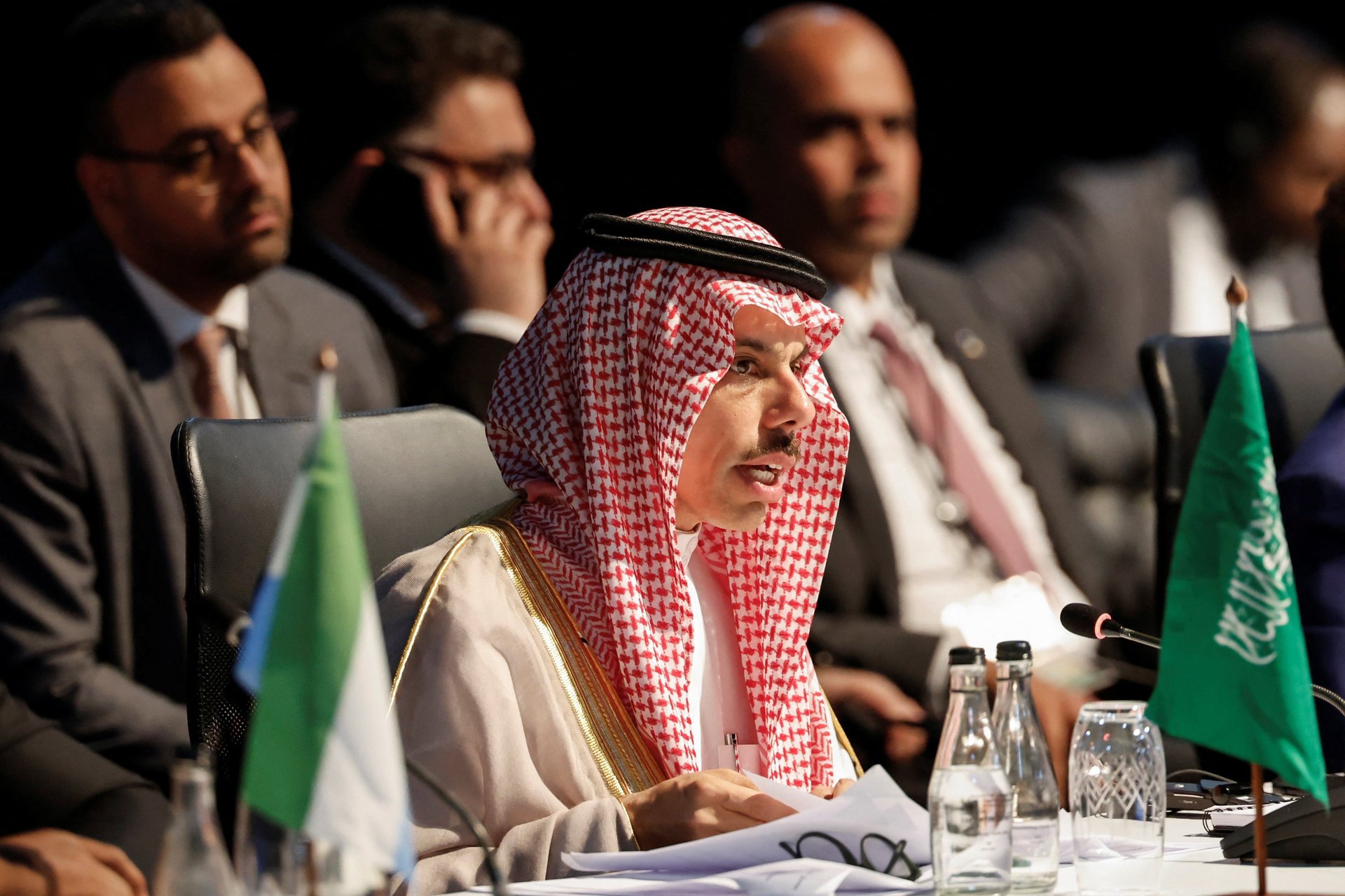The 6 newest BRICS nations are rich with oil and instability
Additions include one near-bankrupt country, several under sanctions, and three oil giants

The BRICS group of developing nations has invited six countries to join the bloc, South African president Cyril Ramaphosa announced during its annual summit today (Aug. 24). Three of the additions—Saudi Arabia, Iran, and the United Arab Emirates (UAE)—are among the top-10 oil producing countries in the world.
Suggested Reading
Argentina, Egypt, and Ethiopia will also be admitted to the group as it seeks to increase the geopolitical influence of countries in the global south on the world stage.
Related Content
Leaders of the current BRICS nations—Brazil, Russia, India, China, and South Africa—gathered for three days this week in Johannesburg, South Africa, where expanding membership headlined discussions. China and Russia, which have framed BRICS as a counterweight to a Western-led hegemonic order, have led the push to bulk up its ranks.
“We need to act on the BRICS spirit of openness, inclusiveness and win-win cooperation to bring more countries into the BRICS family, so as to pool our wisdom and strength to make global governance more just and equitable,” said Chinese president Xi Jinping in remarks read at the summit yesterday (Aug. 23).
Over 40 countries are interested in joining the bloc, South Africa’s ambassador at large for Asia and BRICS Anil Sooklal told reporters last month, according to Reuters. He said 22 have formally asked to join the group. South Africa was the most recent addition, joining in 2010.
BRICS is going for liquid gold over financial solidity with its newest members
Some of the new countries joining BRICS are notably rich with oil, while others are poor on economic stability.
The newcomers from the Middle East include three major oil producers. Saudi Arabia ranked as the second-largest oil producer in the world in 2022, according to data from the US Energy Information Administration, while the UAE and Iran are ranked as sixth and ninth, respectively. Along with Russia, which ranks third in global oil output, BRICS has secured four of the world’s top 10 energy exporters.
Other additions to BRICS diversify its global presence, but have little to contribute in the way of financial or economic heft. Argentina is on the brink of bankruptcy as it faces over 100% year-over-year inflation. Meanwhile, there are growing fears about Ethiopia’s debt stability amid its ongoing talks to secure a $2 billion loan from the International Monetary Fund. Egypt is mired in its own economic crisis amid a severe dollar shortage and struggling currency.
There have been disagreements within the BRICS ranks regarding criteria for admission, including how many nations should be allowed to join, and on what timeline, according to a Reuters source. A central point of contention appears to be finding the balance between openness, which could dilute the group’s political force, and exclusivity—a defining characteristic of rich nations’ G7 group.
“We want BRICS to be a multilateral institution, not an exclusive club,” said Brazilian president Luiz Inácio Lula da Silva, at the summit, as quoted by Reuters. But he also noted that having some guidelines are necessary, to avoid becoming a “Tower of Babel.”
